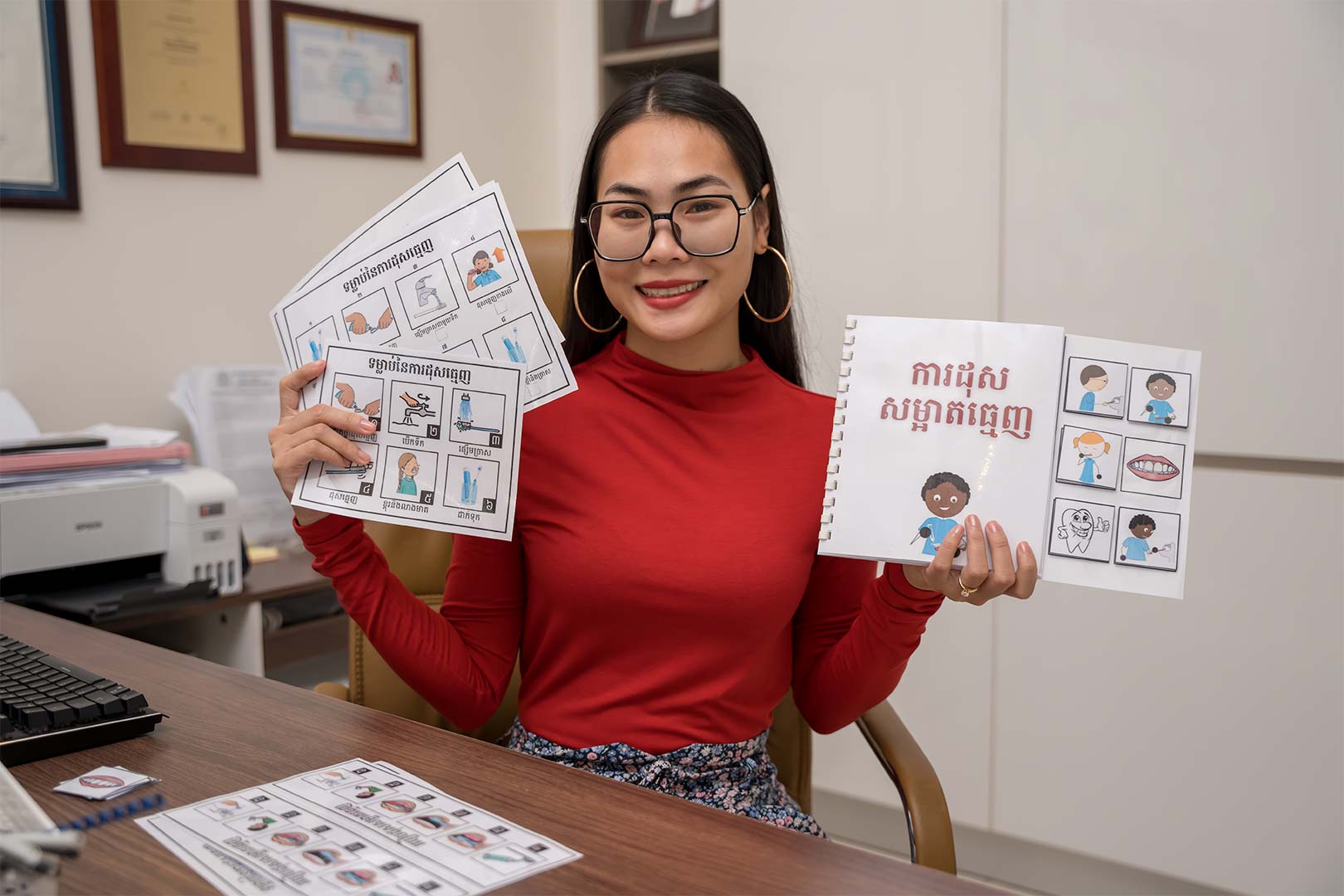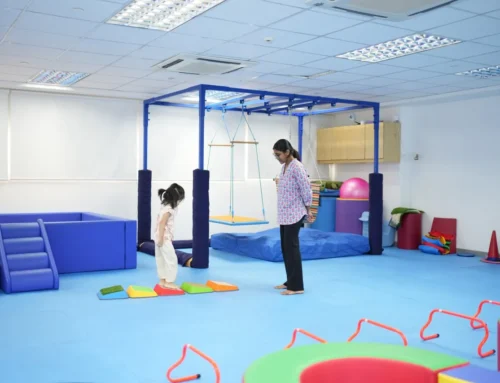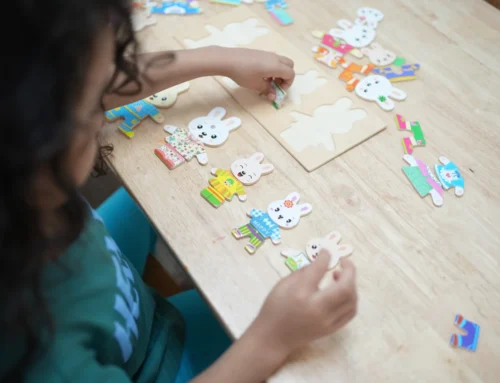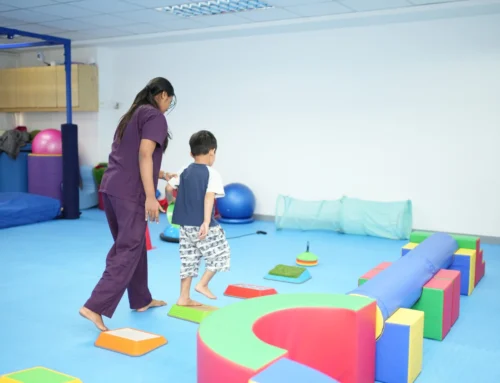Building independence in self-care is possible—and powerful—for autistic children. Developing self-care skills for autistic children starts with breaking routines into small, teachable steps, using visual supports, and practicing in calm, predictable moments. These foundations help with dressing, eating, and hygiene at home and at school, and they’re the same methods our team uses with families who visit OrbRom Center.
Dressing: teach one step at a time
Start with what your child can already do, then add one new step. Use a left-to-right visual strip, lay clothes out in order, and choose easy-on items (elastic waistbands, large zippers). Label drawers with pictures and practice at the same time each day to build automaticity. If clothing textures are hard to tolerate, introduce fabrics gradually and pair each try-on with a regulating activity (deep pressure, wall push-ups). This printable change-clothes checklist can help you map the sequence at home.
Eating: regulation before bites
Many “picky eating” patterns are actually sensory or motor challenges. Begin with regulation: quiet space, consistent chair/foot support, and short meals. Present safe foods alongside a tiny sample of a new food—smell, touch, kiss, or lick without pressure. Keep progress data simple (✓ for “tolerated on plate”). For playful exposure ideas, try these therapist-approved food play strategies. If chewing or swallowing looks effortful, book an assessment so a specialist can screen oral-motor skills and recommend the right plan.
Hygiene: visuals, timers, and routines
For toothbrushing, use a two-minute timer and mirror modeling. Teach the sequence (outside–inside–tops) with a short picture guide; many families print and laminate our step cards. Here’s a classroom-ready guide adapted for home to teach toothbrushing. For toileting, keep a fixed schedule, add a simple “first–then” visual, and practice clothing up/down separately. This practical primer on toilet training for autistic children outlines the phases and how to track progress.
Make sensory needs the starting point
Progress sticks when the nervous system is calm. Identify triggers (noise, tags, toothpaste taste) and plan accommodations before teaching. Our overview of sensory processing in autism explains why regulation comes first. An Occupational Therapy program at OrbRom Center focuses on sensory regulation, motor planning, and hand skills that directly support dressing, eating, and hygiene routines. For children needing a higher level of structure and daily practice, our Special Needs Intensive Intervention provides 1:1 teaching with data-driven goals. Not sure where to start? Book an assessment to set a clear baseline and a realistic, personalized plan.
Bottom line: With predictable routines, visuals, and sensory-smart strategies, developing self-care skills for autistic children becomes achievable—and leads to greater confidence for the whole family. Families near Phnom Penh can access coordinated OT support and practical parent coaching at OrbRom Center.
We are the only Preschool specialized on children with special needs in PhnomPenh.
- Internationally qualified teachers
- Cambodia’s largest sensory room
- Outdoor swimming pool
- Covered outdoor playground
📞 Phone: 077.455.993
Telegram Link: https://t.me/OrbRom





